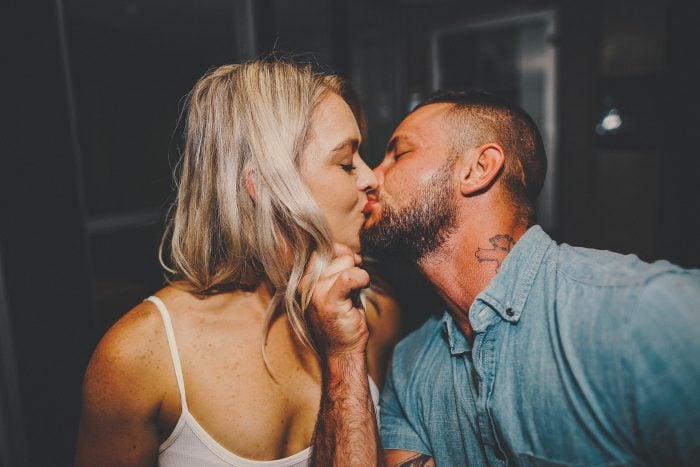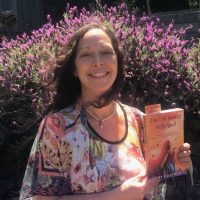*Editor’s note: This article is an excerpt from Amy’s upcoming book, Dating Empowered: a personal growth guidebook for dating… and life! You can find it here.
~
I dated actively in my 40s for a five-year period, and I quickly discovered that there needed to be a strong potential for romance if I was going to put energy into a connection.
Finding compatibility through dating seemed strangely elusive and rare: in the past, my new relationships had always just magically appeared.
But in this phase of my life, the dating years, I had a seemingly endless chain of dates that mostly lacked chemistry. My bigger goal in life was radical honesty (not brutal honesty, but matter-of-fact up-frontness), and dating produced an abundance of opportunities to work my honesty muscles. I made a pact with myself to communicate directly about how I felt either on or soon after a date.
This accomplished my personal growth goal and made dating way easier!
On dates, at some point, the truth inevitably has to be communicated, directly or indirectly (either both people fade awkwardly away, or someone says something). My practice to communicate about chemistry eased some of the discomfort that inevitably arises in dating, and eventually, I felt confident and seasoned in my role of honesty initiator.
Toward the end of a lunch or coffee, I’d either say something like, “Let’s check in about how we’re each feeling about the date,” or I’d use an approach called the “Walk Away“—a plan to check in honestly about the date later (more on this soon).
When I started dating, the worst part was feeling like I was hurting others.
I often found myself in an uncomfortable moment at the end of a date when relaying that I didn’t feel chemistry. Radical honesty was my priority and commitment, but if my date felt rejected, it disturbed me. Emotionally, I felt defensive and subtly blamed, as though it was my fault that we didn’t have chemistry. Confused and knocked off-center, my next move in the “dating dojo” was to stabilize and find a more detached perspective to understand rejection.
How could I ever be a match for someone who was an objective “no” for me? Rejection didn’t make sense because, on my side, it wasn’t subjective: my whole body and spirit said “no.”
As a recovering people pleaser, I knew that I needed to learn to not get pulled into people’s emotional stories. The feelings of someone I barely knew couldn’t really be about me, and in the dating dojo, I worked the muscle of being emotionally detached. But still, there I was, in a connection with a real human being. If I was going to be good at all parts of dating, having an appropriate response to this situation—one that felt good inside me—seemed important.
What the heck was going on with rejection? Could a person I had no attraction to actually have an authentic romantic attraction to me? The dissonance motivated me to understand the dynamic. Visualizing puppets, I imagined putting myself into a romantic relationship with someone I wasn’t attracted to.
Impossible! I couldn’t choose or force an attraction. Chemistry doesn’t come from volition of mind or will.
Can chemistry be one-sided?
I thought back to when the roles were reversed. My own painful, unrequited attractions from the past were mostly ungrounded connections with a big dose of infatuation. I would get my mind, hopes, and fantasies wrapped up in someone, usually with little actual connection.
Sometimes, I was so attracted to someone that I felt awkward, altered, and unsure of myself when there was actual contact. I would be ungrounded and frustrated that the “real me” couldn’t relax enough to show up. My hopes and fantasies seemed to create a force field of limitation. In these cases, I had put the other person up on some kind of pedestal. Thinking of them as above me created a feeling of unease in me.
What is romantic chemistry?
Most of my dates were with nice people who seemed like acquaintances: we got along fine, but there was no romantic feeling. Sometimes, when I sensed an initial sexual vibe, after some connecting—through messaging, video, or in person—I would intuitively feel subtly unsafe, and a wall would go up inside me against proceeding. In those situations, perhaps there was some sexual chemistry, but based on our personality differences, I felt closed to romance.
I thought back to the beginnings of my past romantic relationships. Starting in my early 20s, I identified as a serial monogamist. Over the next decades, I was blessed with a long chain of three-to-four-year-long deep, fulfilling relationships that I called my “love chapters.” I treasured the variety of serial monogamy because each new person whom I clicked with gave me a different reflection of myself.
I had amassed quite a bit of data in these many experiences of true romantic chemistry. Each new time I fell in love, there was always a tangible, mutual attraction. Everything between us got sparked and elevated. Chakras aligned, then furniture. We clicked right into place, every time.
Any relationship that didn’t have mutual compatibility was simply not able to come to be. If anything was off in the mutuality of a connection, it sabotaged the potential for the relationship to take hold, and there was an early dissolution (miscarriage) of the relationship. It just couldn’t happen. I could never have forced it…and wouldn’t have because I’m a sucker for the magic of undeniable romantic chemistry.
The two main areas of necessary connection were our sexuality and our personalities.
If those both aligned, the relationship was able to mature and hold water. Based on this observation, the combination of sexual and personality compatibilities are the foundation for what I call true romantic chemistry.
“Chemistry is chemistry!”
Fancying myself a dating scientist, all of my senses were piqued at the phrase romantic “chemistry.” People throw the term around all the time, but what do we actually mean?
Why is it called “chemistry?” What explains the phenomenon of it seeming so extremely matter-of-fact?
What I came up with was the most relieving, foundational theory of my entire dating experience. Luckily, this concept formed early on in my dating years. It guided the people pleaser in me away from emotionality and into a solid, simple, objective framework of understanding romantic chemistry:
Romantic chemistry has the same properties as scientific chemistry.
This means that romantic chemistry is factual: it’s either there or it isn’t. We all have certain “receptors” that make us either click with another person, or not. Just like molecules, people bond strongly, weakly, or not at all.
Let’s imagine a bunch of molecules at a cocktail party. Some can’t help but gravitate to each other and bond strongly. Two sodium molecules see each other and bam: they connect powerfully, explosively! There’s no need for schmoozing or seducing.
Others, like sodium and chlorine (the two that make table salt) have loose bonds with each other. They engage in friendly conversations and connect for a bit but don’t bond too strongly: as soon as they go soak in the hot tub, they dissolve and separate. And some molecules, like oil and water, just don’t bond.
The main benefit of framing romantic chemistry as parallel to scientific chemistry is that it helps us retain matter-of-fact detachment.
People either bond or they don’t. Helium molecules don’t cry at the bar feeling rejected because oxygen likes hydrogen better. Nope, helium is content to float on its own.
Nitrogen doesn’t get jealous. Iron doesn’t feel bad about itself. There’s either a connection or there isn’t. We can’t force water to bond with oil. And neither gets upset about it. Like people, they all just bump around until natural bonds form.
There is a subtle but important tweak when we shift from “I’m not interested in dating you” to “There isn’t strong enough chemistry between us” that shifts the approach from emotional to scientific. We are naming the truth (chemistry) instead of seeing our decision as a preference (rejection).
This theory supports our hearts and self-esteem.
If, just like biological chemistry, romantic chemistry is factual not subjective, there is never a good reason to pine for someone or worry they won’t be attracted to us. There is no reason for anyone to get upset about which relationships form and which ones don’t.
We can learn to trust that connections are always mutual and matter-of-fact, and that the universe provides us with mutual chemistry at the right time, when we are ready.
~
Stay tuned for Part II!


 Share on bsky
Share on bsky





Read 23 comments and reply